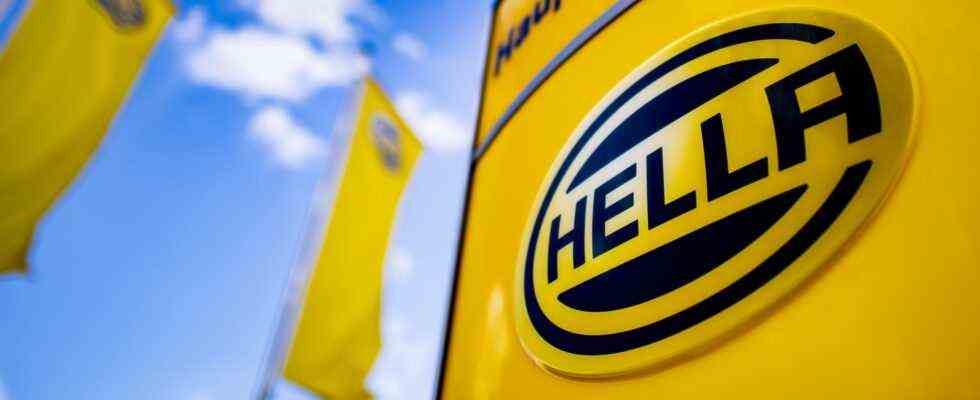Status: 16.08.2021 6:08 p.m.
The switch by car manufacturers to electromobility is also putting suppliers under pressure to act. You have to reinvent yourself. Mega takeovers like that of Hella by Faurecia are the logical consequence.
Bosch, Continental and ZF Friedrichshafen still dominate the European and, in some cases, the global automotive supplier market. But the competition is increasing: With the takeover of the headlight specialist Hella from Lippstadt in Westphalia, which cost up to 6.8 billion euros, the French Faurecia rises to number four in Europe and the seventh largest supplier worldwide. The goal of the French is to get more access to the German automakers thanks to Hella.
Faurecia: With Hella, more independent of the combustion engine
With the takeover, Faurecia also wants to make itself more independent of the internal combustion engine. The company, which has long been closely associated with the PSA Group, currently generates a quarter of its sales with components for gasoline and diesel cars. In four years it should be less than ten percent. “Together we will have a decisive lead when it comes to benefiting from the strategic drivers of the transformation in the automotive industry,” said Faurecia boss Patrick Koller.
Faurecia rises to number four in Europe thanks to the Hella takeover.
Image: REUTERS
In fact, the decision to say goodbye to combustion engines, as enforced by the EU Commission, will put suppliers under pressure from 2035 onwards. They have to change their business models and find new niches in e-mobility. Bosch, ZF and Conti are currently facing tough cut-throat competition for the most valuable components in the electric drive train. They rely on so-called inverters, which regulate the flow of electricity.
Bosch fully energized
By 2025, Bosch wants to increase its sales in electromobility five-fold to around five billion euros a year, and from 2024 the group wants to make money here. Areas that are heavily linked to gasoline and diesel are gradually being shut down or abandoned. For example, Bosch plans to close a location in Munich where fuel pumps and injection valves were previously manufactured. And Continental is spinning off its drive division under the name Vitesco Technologies and is increasingly focusing on software for autonomous driving and the networking of cars.
Companies like Bosch, which have established a good market position for themselves in the future fields, would manage the transition to e-mobility well, says Elmar Kades, car expert from the management consultancy Alix Partners. But those who depend on the combustion engine have to change and restructure quickly.
Some suppliers are struggling to survive. The emissions specialist Eberspächer, for example, currently still makes almost 90 percent of its sales with products for cars with internal combustion engines. The family company, the world leader in catalytic converters, wants to expand its business with battery management systems as well as auxiliary and auxiliary heating in vehicles. In ten years, 60 percent of the proceeds should be independent of the combustion engine.
Ten times fewer parts in the electric car
Auto experts predict that fewer suppliers will be needed in the electric era. Because an electric car does not need a cylinder head gasket, an oil filter or a tank. The combustion engine has around 2500 components that need to be assembled, explains Kai Bliesener, car specialist at IG Metall. The electric drive, on the other hand, only consists of 250 parts.
Battery cell production is a possible new business area. But Bosch, Conti & Co have so far shown no interest in entering this market, which is dominated by Asian manufacturers. “Cell production would actually be a field of activity for the German supplier industry,” complained VW boss Herbert Diess at the last “Handelsblatt” auto summit. Diess and also Daimler boss Ola Källenius try again and again to persuade Conti and Bosch to enter the battery cell business – so far in vain.
German car manufacturers are now building their own batteries. Porsche wants to produce a factory for high-performance batteries in Tübingen together with its partner Customcells by 2024. In the medium term, Daimler is planning eight giant factories to manufacture battery cells. And VW has already announced the construction of six of its own “Gigafactories”.
Chips instead of battery cells
Instead, Bosch relies on chips. The traditional supplier has invested one billion euros in its own chip factory in Dresden, which was recently opened. “When developing software, which is becoming more and more important for the car, it is advantageous to penetrate the topic down to the chip level,” said Bosch boss Volkmar Denner to the “Handelsblatt”.
Bosch is now competing with the large chip companies such as Intel or Qualcomm. For their part, these are increasingly pushing their way into the automotive supplier sector and causing problems for the German market leaders. Recently, Qualcomm swallowed the Swedish software and sensor company Veoneer for almost four billion euros. The Swedes specialize in the development of driver assistance systems. And two years ago, Intel swallowed the Israeli Mobileye – for more than 15 billion dollars. Mobileye supplies the camera technology for autonomous cars.
The business field is extremely lucrative. Instead of hundreds of control units, the cars of the future will function with a few central computers. Bosch, Conti and ZF develop such central computers for car manufacturers.

